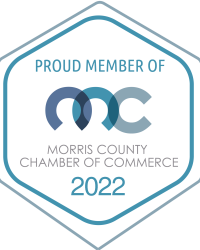
Drug and Alcohol Use & Heart Health
When it comes to heart health it is important to know the risks associated with using drugs and alcohol. While drugs and alcohol alone may not cause cardiovascular conditions, using substances have the ability to intensify existing conditions or increase risk of deterioration in the health of the heart and/or blood vessels. If someone is abusing substances or alcohol regularly, serious health issues specific to the cardiovascular system and the heart may arise. Behaviors like drinking, smoking, and drug use are linked to premature heart disease. Researchers at the BMJ (one of the most prominent peer reviewed medical journals) found that the recreational use of tobacco, cannabis, alcohol, and illicit drugs, such as amphetamine and cocaine, are linked to premature atherosclerosis. Additionally, people who engage in these behaviors are at increased risk of heart attack and stroke. It is important to educate people on the ongoing risks associated with drug and alcohol use and its impact on the body so that they make informed decisions. If you want a strong and healthy heart, you should avoid drug and alcohol abuse.
The Importance of Early Intervention
The foundation for making responsible decisions related to drug and alcohol use starts in the home. One of the most significant factors during childhood is maintaining a strong, open relationship with a parent. When parents promote a trusting, nurturing environment, children make better decisions. Furthermore, it is better to begin the talk about alcohol and other drugs before children are exposed in the real world. The more direct and honest parents are with their children, the more likely they are to respect boundaries relating to alcohol and drug use. By speaking with their children early and often about alcohol and other drugs, they can protect their children from engaging in many high-risk behaviors. As children age, the likelihood that they will experiment with drugs and alcohol increases. Studies show that by age 12, 10% of people have tried alcohol. By age 15, this figure balloons to 50%. Furthermore, by senior year in high school nearly 70% of students will have tried alcohol, 50% will have experimented with illegal drugs, and over 20% will have used a prescription drug for a nonmedical purpose. The sooner you talk to your children about alcohol and other drugs, the greater chance you have of influencing their decisions about drinking and substance use. Big picture, it is important that we eliminate the stigma and start the conversation early.
The Evolving Risks of Drug Experimentation
The risks associated with drugs and alcohol are widespread and they continue to grow daily. As a result of certain substances being made medically and recreationally legal, people have forgotten the risks associated with purchasing drugs on the black market. The office of Emergency Medical Services in Connecticut received reports of overdose patients who exhibited opioid overdose symptoms and required naloxone for revival after smoking marijuana. These patients denied any opioid use and claimed to have only smoked marijuana. There have been 40 reported incidents in the last 6 months where only marijuana use was reported but naloxone (an opiate overdose reversal drug) was required to mitigate the overdose. It is important that we not only understand the risks of drug use on health, but also have conversations early and often to educate people about the possible dangers of marijuana laced with fentanyl. Marijuana laced with fentanyl is deadly.
If you ever have any questions on how to approach tough conversations about drug and alcohol abuse feel free to reach out to the admissions counselors at BlueCrest Recovery Center. You are never alone! BlueCrest Recovery Center in Woodland Park, NJ prides itself on advocating for people struggling as well as for helping to educate the community so we can grow stronger together. If you think you or a loved one have an issue with drugs or alcohol and need to talk, don’t hesitate to call BlueCrest 24/7 at 973-832-1722.
For more information, please reach out to John Plunkett, Outreach Coordinator for BlueCrest Recovery Center
Email: JohnP@BlueCrestRC.comPhone: (973) 902-6116
1 https://www.samhsa.gov/talk-they-hear-you/parent-resources/why-you-should-talk-your-child




